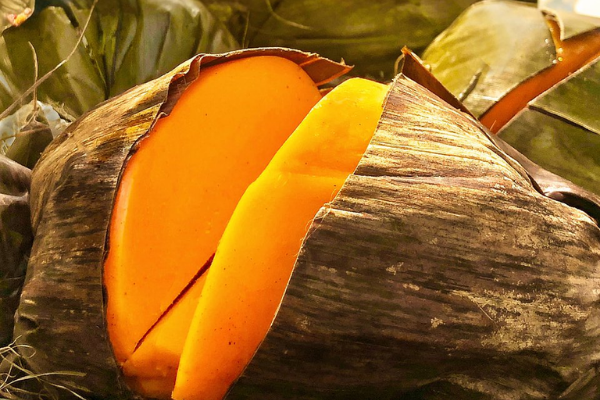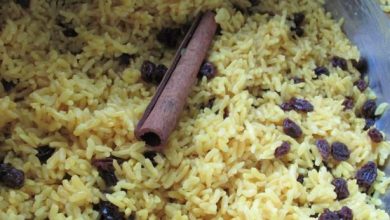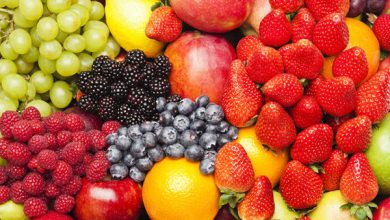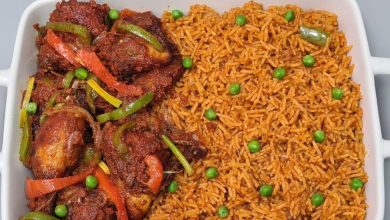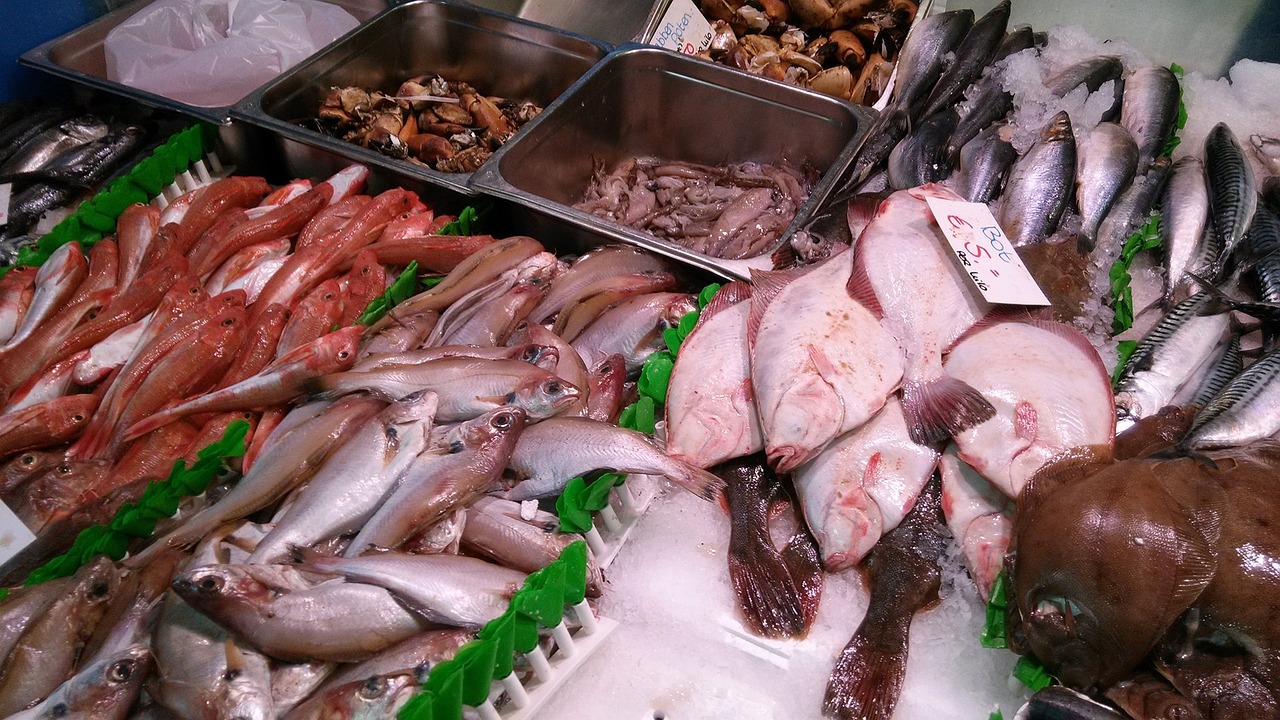Top 15 Nigerian Street Foods to Try as a Tourist
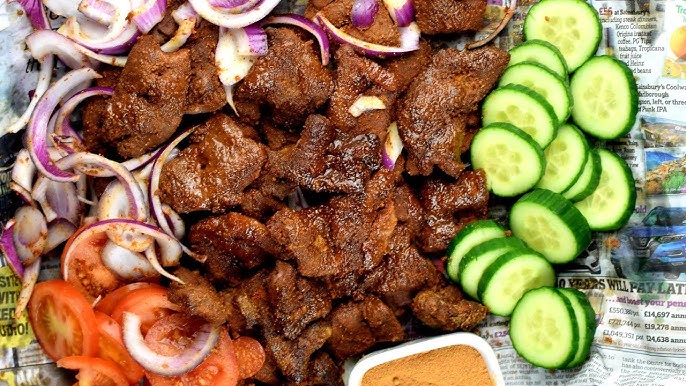
Nigerian street food is really special. Perhaps it’s the way the natural setting takes us back to simpler times or the manner in which the hustle and bustle of the evening streets give the food an extra kick. Whatever the case, it’s undeniable that street food in Nigeria is something to be savoured and enjoyed.
Travelling to Nigeria and unsure what to eat? Try out these 15 popular street foods for a true taste of local culture and flavour.
15 Nigerian Street Foods to Try as a Tourist
-
Suya
Suya could be considered to be Nigerian street cuisine due to its remarkable versatility and the symphony of flavors it brings to your palate. Prepared from skewered, barbecued beef, chicken, ram, or various other proteins, Suya boasts of a variety of local spices that impact an exquisite and easily recognizable kick. It is available at virtually every junction, bar, restaurant, and pub across the country. For many, Friday evenings aren’t complete without savoring a plate of succulent, spicy Suya served on old newspapers and adorned with cucumbers, onions, cabbage, and tomatoes.
2. Bole
Bole could arguably be Nigeria’s most well-known street food. Bole is a straightforward plantain dish. This delicious offering consists of roasted plantains, whether ripe or unripe, served alongside grilled or roasted fish, pepper sauce, and even groundnuts. It may also include roasted yam, corn, coconut, or avocados. Widely embraced, Bole is readily found in almost every junction in practically every state. Despite the obvious simplicity of roasting plantains, the taste of Bole varies across different states. While Bole is commonly enjoyed as a roadside treat, numerous restaurants and bars also feature this tantalizing delicacy. One notable location is ‘Elehakia’ in Port Harcourt, Rivers State, where they promote the Bole experience by offering personalized garnishes.
Read also, The 10 Foods to Take Along While on a Journey
3. Abacha
Abacha, also known as African Salad is a street food that boasts a heritage linked to royalty. Specially crafted with cassava, the process involves cooking and shredding cassava, rounded off by green vegetables, palm oil, roasted fish, onions, and garden eggs meticulously set up for visual appeal.
4. Kuli Kuli
Kuli Kuli characterizes a crispy snack prepared from processed peanuts and peanut oil, accounting for its firm texture. It is usually eaten on its own or paired with Garri, Fura de nunu, or Kamu. This crunchy treat appears in different shapes and sizes, ranging from long and slender, like a pencil to flat and wide, resembling mini discs.
5. Fried yam
Frequently referred to as Dundun, this gratifying dish is generally accompanied by fried plantain and pepper sauce. To prepare this delicious meal, yam is sliced into bite-sized pieces and deep-fried in hot oil.
6. Roasted corn
True to its name, roasted corn involves roasting corn on a cob. A desired choice, particularly during the rainy season, this food is typically enjoyed by itself or paired with roasted African pear (Ube) and coconut or boiled cassava flakes. Similar to other street foods not confined to a specific ethnic group, roasted corn is accessible throughout Nigeria and commonly available at junctions and roadside stalls.
7. Ewa Agonyin
Ewa Agoyin entails well-cooked brown beans paired with deeply fried stew usually adorned with fried plantain, fish, or pomo (cow skin), depending on both the eatery and personal preferences. Commonly, this food is enjoyed alongside fresh, soft, unsliced bread, often referred to as ‘Agege bread’ in Nigeria. For an authentic experience, Ewa Agoyin is best enjoyed in its purest, local form, often found by the roadside.
8. Puff puff
A popular appetizer in most meetings, this delicious comfort food is predominantly made with flour, sugar, nutmeg, yeast, and eggs, blended, and allowed to rise for approximately an hour or more. Following this, the dough is shaped into balls and deep-fried until a golden brown hue is achieved. While puff-puff can be enjoyed on its own, it is frequently served alongside Samosa, Fried Chicken, and Spring Rolls, collectively known colloquially as ‘Small Chops.’ Puff-puff holds a universal appeal, it is enjoyed by people from different Nigerian tribes, making it a food that holds no specific regional ties. It is readily available at nearly every bus stop.
9. Okpa
Okpa is a popular Nigerian street food, especially amongst the Igbo people. Prepared with a type of bean known as Bambara nuts which is combined with other ingredients like palm oil, onions, and other spices. It could be eaten as a breakfast or lunchtime food. It is common in Enugu state and classified as a traditional Nigerian delicacy. It is not exclusive to just the Igbos as other ethnic groups often eat it with either pap or by itself.
10. Akara
Akara balls, also known as bean cakes, are a type of Nigerian street food. They’re made from a paste of beans and onions with other ingredients that are deep-fried in hot oil until light brown and crispy. They are usually served with tomato sauce or fried ripe plantains. Akara balls are loved for their flavor and crispy texture, and they’re often savored as a snack or light meal. They’re also sometimes eaten for breakfast, served with pap or bread and tea.
11. Ogi
Ogi popularly known as Akamu is made from fermented cereal pudding and is a popular street food in Nigeria, typically made from maize, sorghum, guinea corn, or millet. Traditionally, the grains are soaked in water for up to three days, before it is ground and sieved to remove husks. It is then filtered and allowed to ferment for up to three days until sour. It can be boiled into a pap, or cooked to make a creamy pudding also known as Agidi or Eko. It could be eaten with moi moi, akara, or bread, depending on individual preference.
12. Agidi
Agidi, also known as eko, is a popular, traditional Nigerian dish made from maize or cornstarch. This smooth, gelatinous pudding is a versatile accompaniment to various Nigerian dishes
It has a porridge-like consistency and could be served alongside stew or pepper soup. It could be eaten for breakfast or as a light snack. It’s a very versatile dish that can be served hot or cold, and it can be flavored with spices to suit your taste.
13. Kpokpo garri
Kpokpo garri, also called cassava flakes, is a local Nigerian snack whose carbohydrate or starch content has been extracted so it’s a good food for weight loss. It can also be eaten with various things, depending on your choice. But the most commonly used is groundnut. Though some like it with spiced grilled fish.
14. Moi-Moi
Moi moi is Nigeria’s pudding cake. It is a popular dish made of beans which is then cooked in leaves. It has a consistency similar to pudding and is usually flavoured with spices and onions. Moi moi is a delicious meal that can be eaten on its own or served as an accompanying dish. It’s often eaten as breakfast or as a light meal, and it can be eaten hot or cold. Moi moi is packed with nutrients, including protein, fiber, and B vitamins, making it a healthy and replenishing option.
15. Meshai
This is a Nigerian sandwich stuffed with egg and other ingredients. It consists of bread jammed with fried egg and other components. It is one of Nigeria’s greatest street foods. A vendor makes fried noodles with egg, bread, and other ingredients, most people go for it as breakfast or dinner. It is one very easy meal to prepare and enjoyable.
Other street foods you can find in Nigeria include:
- Guguru and epa(popcorn and ground)
- Kunu
- Fura da nono
- Zobo
- Pepper snail
- Edible worm
- Kilishi
- Plantain chips
- Sweet potato chips
- Chin chin
- Garden egg and groundnut paste
- Ukwa(African breadfruit)
So, whether or not you’re a tourist in Nigeria, it is good you consider giving these Nigerian street foods a try before departing. From abacha to kpokpo garri, there are so many delicacies and unique dishes to savor. And just maybe you might find a favorite! So, take hold of your fork and get your taste buds ready to embark on a tasty journey through the streets of Nigeria. You won’t be let down.

